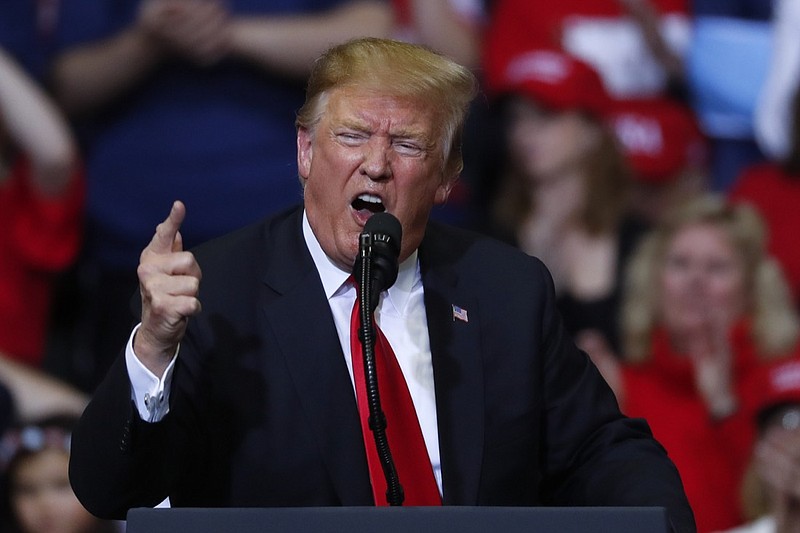Stephen Moore wants the media to pay less attention to his idiotic comments about gender and more attention to his idiotic comments about the economy.
Sure thing, bro. Happy to help out.
Moore, whom President Trump wants to appoint to the Federal Reserve Board, has been complaining about a "sleaze campaign" against him. He has enlisted the PR firm that helped save Brett Kavanaugh's Supreme Court nomination, arguing that his opponents are "pulling a Kavanaugh against me." Which is odd, because Kavanaugh at least could claim he faced an ultimately unprovable he-said-she-said situation.
Moore's situation is more like he-said-and-then-he-said-it-again-and-again-ad-nauseam-in-public-for-decades.
In any case, Moore claims that critics focus on the "spoofs" he made about the women because they don't want to grapple with his awesome economic views.
"They have not attacked me on my economic ideas," he crowed to a right-wing radio host.
That contention is laughably false, as readers of The Washington Post know. Even high-profile conservative economists - including experts at the American Enterprise Institute, Hoover Institution, Cato Institute and Mercatus Center - have criticized Moore for his wrong, intellectually dishonest and politically malleable economic positions.
But for those who (understandably) haven't been following along, here are the non-gender-related highlights:
1. Moore can't tell whether prices are going up or down. This is an important thing to know if you're on the Fed, half of whose dual mandate is stable prices.
Moore has repeatedly, and falsely, claimed that the country is experiencing "deflation." That means prices are falling, which they are not. But claiming this gives him cover to argue that the Fed should pump more stimulus into the economy just as Trump begins running for reelection.
2. Relatedly, Moore claims official government economic statistics are phony when they don't suit his preferred political narrative.
3. Moore advocates - at least when politically convenient - crank economic ideas, including returning to the gold standard. This idea is roundly rejected by actual economists and would result in much more price volatility.
When called on such nonsense, Moore has claimed he never said such things, even after being presented with video evidence.
4. He cheered the failure of Lehman Brothers, an event that (foreseeably) set off a worldwide financial panic and nearly plunged the entire global economy into another Great Depression. This doesn't inspire confidence in Moore's instincts next time the Fed has to handle a financial crisis.
5. Moore lies, and lies, and lies.
About his own record, and about easily Google-able facts. Now I realize the word "lie" implies knowing intent to mislead, as opposed to possibly ingenuous misstatement of fact. But note that, even after being corrected on his various falsehoods - including about the Volcker Rule, Canadian tariff rates, whether tax cuts have paid for themselves - he has often repeated the exact same falsehood.
6. More broadly, Moore prioritizes what's good for his party above what's good for the economy. Which is toxic to an institution that must be politically independent in both practice and perception to function.
You can see this tendency of Moore's in his monetary policy flip-flops, as well as his calls for Trump to fire everyone at the Fed who doesn't do Trump's bidding. Most recently, you can see it in Moore's explanation of the one concern that could persuade him to withdraw his Fed candidacy: if he concluded that sticking around might hurt the GOP.
Fortunately, if he cares about what's good for the economy and what's good for his party, there might just be a way to kill two birds with one stone.
Washington Post Writers Group
